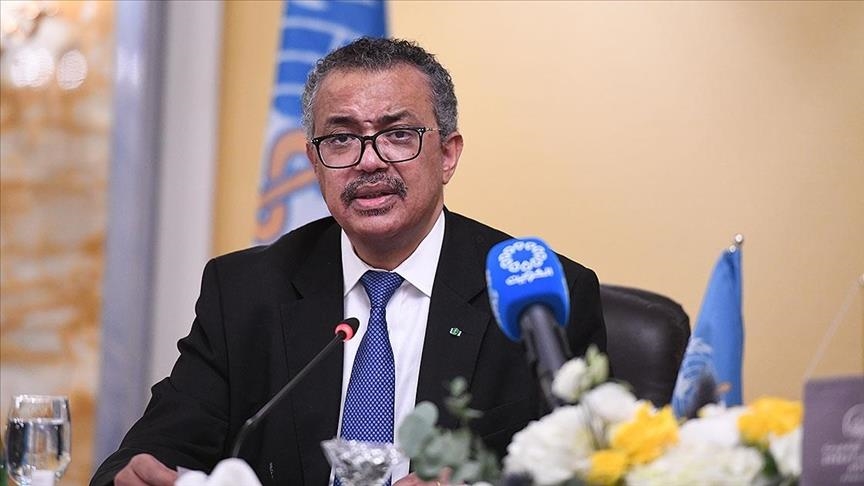The World Health Organization chief on Monday said it is clear that the world was, and remains, unprepared for a pandemic, calling for support for universal health care and other reform measures.
WHO Director-General Tedros Ghebreyesus, the sole candidate for reelection to the post, delivered his vision for the next five years for the WHO at the 75th World Health Assembly (WHA) opening session.
The WHA, the WHO's main decision-making body, adopted a resolution as its first item to not include Taiwan as an observer in the assembly after China made a spirited objection in the opening exchanges, describing the move as "political manipulation."
Last Wednesday, US Secretary of State Antony Blinken issued a statement, saying: "Inviting Taiwan to attend the WHA as an observer would exemplify the WHO's commitment to an inclusive approach to international health cooperation and health for all".
- Taiwan is a highly capable, engaged, and responsible member of the global health community, and it has been invited to participate as an observer in previous WHA meetings.
China's Ambassador to the UN Geneva Chen Xu said the proposals to have Taiwan attend as an observer had not succeeded in five years.
- The Taiwan authority engages in political manipulation at the cost of disrupting the WHA. Its true aim is to seek independence through the pandemic. Its true aim is to counter China through the Taiwan issue.
In his speech, Tedros said the COVID-19 pandemic is far from over.
- And even as we continue to fight it, we face the task of restoring essential health services, with 90% of member states reporting disruption to one or more essential health services. The pandemic has demonstrated why the world needs WHO, but also why the world needs a stronger, empowered, and sustainably financed WHO - said the WHO chief.
Tedros said the world health body would like to see 1 billion more people benefiting from universal health coverage by 2023, but it is far behind, and progress is less than one-quarter required to reach the target.
- Even before the pandemic, we estimated that only 270 million more people would be covered by 2023, a shortfall of 730 million people against the target of 1 billion.”
He noted: It's clear that the world was -- and remains -- unprepared for a pandemic.
- Every month, WHO processes more than 9 million pieces of information, screens 43,000 signals, reviews 4,500 events, and verifies an average of 30 events.
- In the past five years, WHO has responded to more than 120 emergencies, cyclones, volcanoes, earthquakes, outbreaks, wars, and a pandemic. Some last a few months, some last for years - said Tedros and added:
- Currently, health spending in most countries is imbalanced towards secondary and tertiary care, with massive amounts spent on expensive equipment and medicines that often deliver modest health gain.By contrast, 90% of essential health services can be delivered through primary health care. And we estimate that investing in primary health care could increase global life expectancy by as much as six to seven years by 2030 - he said.
Tedros said the WHO's secretariat had prepared a proposal for a more equitable global architecture that includes the need for coherent, inclusive, and accountable governance and more robust systems to prevent, detect, and respond rapidly to health emergencies.
He also said there is a need for adequate and efficient financing, domestically and internationally.
- I welcome the recommendation of the Working Group on Sustainable Financing to increase assessed contributions to 50% of the core budget over the next decade - the WHO chief added.
